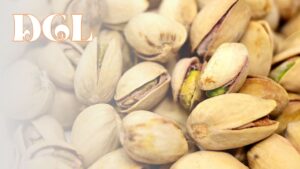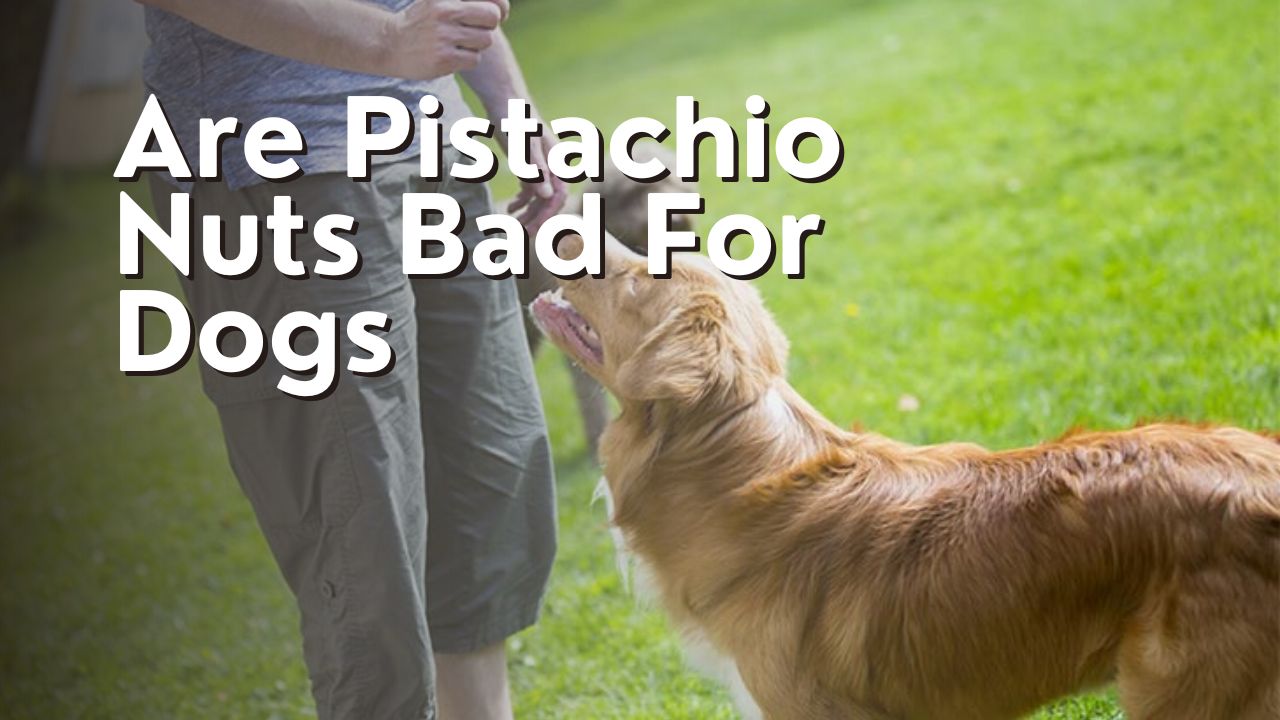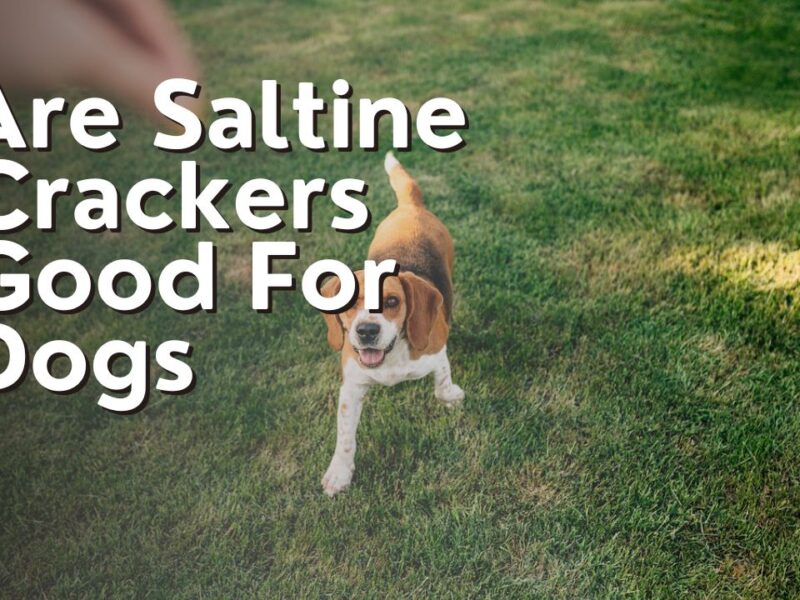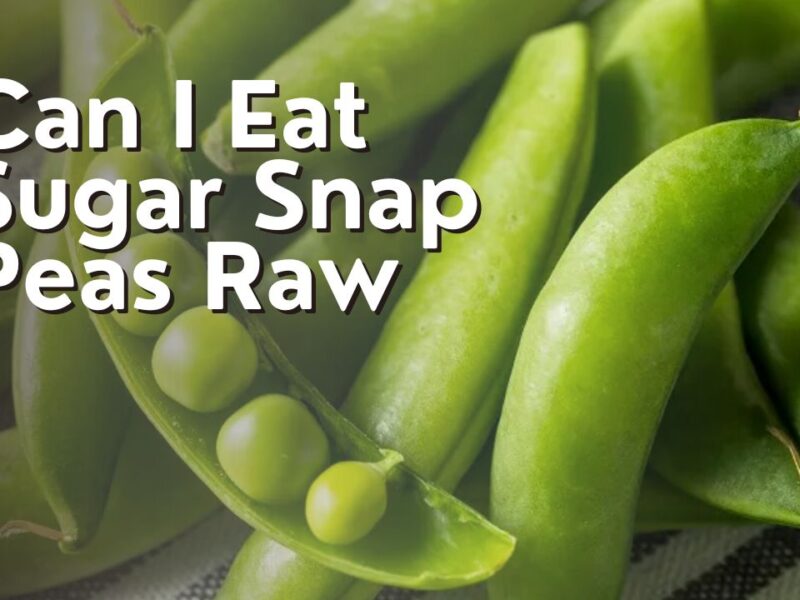Hey there, fellow dog owners! Have you ever wondered if pistachio nuts are bad for our furry friends? Well, wonder no more because I’m here to shed some light on the subject.
As a dog lover myself, I understand the importance of feeding our pups safe and healthy treats. That’s why I’m diving into the potential risks of giving pistachio nuts to dogs in this article.
You see, while pistachio nuts may be a delicious and nutritious snack for us humans, they can actually pose some dangers to our canine companions. From potential digestive issues to the risk of nut allergies, it’s important to be aware of the symptoms of pistachio nut toxicity in dogs.
But don’t worry, I’ll also be sharing some alternatives to pistachio nuts that are safe and tasty for your furry friend.
So, let’s dig in and learn more about whether or not pistachio nuts are bad for dogs. Your pup’s health and happiness are our top priorities, after all!
Potential Risks of Pistachio Nuts for Dogs
Pistachio nuts may seem harmless, but they pose potential risks to dogs. Dogs have difficulty digesting the high fat content in pistachios, which can lead to pancreatitis. Aflatoxin, a toxic compound found in pistachios, can cause liver damage and failure. The shells of pistachios can be a choking hazard or cause intestinal blockage. Even without the shells, the nuts themselves can still be a choking hazard. It’s best to avoid feeding pistachio nuts to dogs to ensure their safety and well-being.

Symptoms of Pistachio Nut Toxicity in Dogs
When it comes to pistachio nut toxicity in dogs, there are several symptoms to be aware of.
The first sign is usually vomiting and diarrhea, which can be a result of the high fat content in pistachios.
Dogs may also experience abdominal pain, indicated by a hunched posture or sensitivity when touched.
Another common symptom is lethargy and weakness, as the toxins from pistachios can affect their energy levels.
Additionally, increased thirst and urination may be observed due to the salt content in the nuts.
Vomiting and Diarrhea
If your furry friend indulges in pistachio nuts, they may experience unpleasant digestive issues like vomiting and diarrhea. These symptoms occur because pistachios contain a high amount of fat and fiber, which can be difficult for dogs to digest.
When dogs consume too much fat, it can lead to an upset stomach and cause them to vomit. Additionally, the fiber in pistachios can irritate their digestive system, leading to diarrhea.
It’s important to monitor your dog’s symptoms closely and seek veterinary care if the vomiting and diarrhea persist or worsen. In the meantime, make sure to keep pistachios and any other potentially harmful foods out of your dog’s reach to prevent further digestive issues.
Abdominal Pain
Experiencing abdominal pain? Keep an eye out for any signs of discomfort in your furry friend after they’ve indulged in certain foods.
Pistachio nuts may seem harmless, but they can actually cause abdominal pain in dogs. If your pup starts showing signs of discomfort such as restlessness, whimpering, or a hunched posture, it could be a sign that their belly is hurting.
Remember, dogs cannot digest pistachio nuts as easily as humans can, leading to digestive issues and abdominal pain. To keep your furry friend happy and healthy, it’s important to avoid feeding them these tasty treats altogether. Stick to dog-friendly snacks and consult your vet if you notice any signs of abdominal pain in your pup.
Lethargy and Weakness
Feeling tired and weak? Keep an eye out for any signs of lethargy or weakness in your furry friend, as it could be a sign of something more serious. When it comes to dogs, these symptoms can indicate a range of health issues, so it’s important to pay attention.
Lethargy is characterized by a lack of energy and enthusiasm, while weakness refers to a loss of strength or physical ability. If your dog is exhibiting these signs, it’s crucial to consult with a veterinarian to determine the underlying cause.
Lethargy and weakness can be caused by various factors, such as infections, organ dysfunction, or even poisoning. Remember, early detection and proper medical care are essential for your dog’s well-being, so don’t hesitate to seek professional help if you notice any concerning changes in their energy levels.
Increased Thirst and Urination
Keep an eye on your furry friend if they start drinking more water and peeing more frequently, as it could be a sign of an underlying health issue. Increased thirst and urination are common symptoms in dogs who have consumed pistachio nuts, which can be harmful to their health.
The high salt content in pistachios can lead to dehydration in dogs, causing them to drink more water to compensate. Additionally, the high fat content in these nuts can put strain on their digestive system, leading to increased urination.
If you notice these symptoms in your dog after they have consumed pistachio nuts, it is important to contact your veterinarian for guidance. It is best to avoid feeding pistachios to your furry friend to prevent any potential health issues.
Treatment for Pistachio Nut Toxicity in Dogs
If your dog has ingested pistachio nuts and is showing symptoms of toxicity, you should immediately consult a veterinarian for the best treatment options. Time is of the essence when treating pistachio nut toxicity in dogs, as prompt intervention can make a significant difference in their recovery.
Here are some common treatment approaches that a veterinarian may recommend:
- Inducing vomiting: If the ingestion has occurred recently and the pistachio nuts haven’t passed into the digestive system, your veterinarian may induce vomiting to remove the nuts from your dog’s stomach.
- Activated charcoal administration: Activated charcoal is often used in cases of poisoning to absorb toxins and prevent their absorption into the bloodstream. Your veterinarian may administer activated charcoal to help eliminate any remaining toxins from the pistachio nuts.
- Supportive care: Depending on the severity of your dog’s symptoms, supportive care may be necessary. This can include intravenous fluids to maintain hydration, medications to control symptoms like vomiting or diarrhea, and monitoring of vital signs.
Remember, this information is not a substitute for professional veterinary advice. Always consult your veterinarian for personalized guidance and treatment options tailored to your dog’s specific needs.
Alternatives to Pistachio Nuts for Dog Treats
There are plenty of healthy and safe alternatives to pistachio nuts that can be used as tasty treats for your furry friend. As a responsible dog owner, it’s important to be aware of foods that can be harmful to our pets. While pistachio nuts can be toxic to dogs, there are many delicious options that are completely safe and even beneficial for them.
Here is a table showcasing some great alternatives to pistachio nuts for dog treats:
| Alternative | Benefits | Recommended Serving Size |
|---|---|---|
| Carrots | High in fiber, promotes dental health | 1-2 baby carrots |
| Blueberries | Packed with antioxidants | 5-10 berries |
| Pumpkin | Supports digestion | 1-2 tablespoons |
| Peanut Butter (unsalted, sugar-free) | Good source of healthy fats | 1 teaspoon |
These alternatives not only provide a tasty snack for your pup but also offer various health benefits. Remember to introduce new treats gradually and monitor your dog for any adverse reactions. Always consult with your veterinarian before making any changes to your dog’s diet.
By choosing these safe and healthy alternatives, you can ensure that your dog enjoys delicious treats without any risk to their well-being.
Consulting with a Veterinarian
To ensure the best care for your furry friend, it’s crucial to consult with a veterinarian when it comes to their health and dietary needs. When considering alternatives to pistachio nuts for dog treats, a veterinarian can provide valuable guidance and recommendations. They have the expertise to assess your dog’s specific needs and advise on suitable alternatives that are safe and nutritious.
Consulting with a veterinarian allows you to gain insight into your dog’s individual health conditions and any potential allergies or sensitivities they may have. They can help determine the best course of action and suggest alternative treats that are both tasty and beneficial for your dog’s overall well-being.
A veterinarian can also provide information on portion sizes and frequency of treats to ensure your dog maintains a healthy weight and avoids any potential digestive issues. They can guide you on incorporating alternative treats into your dog’s diet while still meeting their nutritional requirements.
Remember, every dog is unique, and what works for one may not work for another. By consulting with a veterinarian, you can make informed decisions and provide your furry friend with the best possible care, ensuring their health and happiness for years to come.

Preventing Accidental Consumption
Make sure to take proactive measures to keep your furry friend safe from accidentally ingesting anything harmful. When it comes to pistachio nuts, it’s important to be extra cautious because they can be toxic to dogs. Here are some ways to prevent accidental consumption:
- Store pistachio nuts in a secure container: Keep them in a tightly sealed jar or container that your dog can’t open. This will prevent them from having easy access to the nuts.
- Keep pistachios out of reach: Store them in a high cabinet or on a shelf that your dog can’t reach. Dogs are curious and can easily jump or climb to get to something that smells delicious to them.
- Clean up spills promptly: If you accidentally drop pistachio nuts on the floor, make sure to clean them up immediately. Dogs have a keen sense of smell and will be attracted to any food that is within their reach.
- Educate family members and guests: Inform everyone in your household and any visitors about the dangers of pistachio nuts for dogs. Remind them to be mindful of where they leave their snacks to avoid any accidents.
By taking these precautions, you can help ensure that your dog stays safe and healthy.
Frequently Asked Questions
Can dogs eat pistachio shells?
Yes, dogs can eat pistachio shells, but it’s not recommended. The shells can be a choking hazard and may cause digestive issues. It’s best to avoid giving them to your furry friend.
Are there other types of nuts that are safe for dogs to eat?
Yes, there are other types of nuts that are safe for dogs to eat. Some examples include peanuts (without shells), cashews, and almonds (in moderation). However, always consult with a vet before introducing any new food to your dog’s diet.
How much pistachio nut is considered toxic for dogs?
Eating even a small amount of pistachio nuts can be toxic for dogs. It is best to avoid giving them any at all.
Are there any long-term effects of pistachio nut toxicity in dogs?
There can be long-term effects of pistachio nut toxicity in dogs. It’s important to know that pistachios are not safe for dogs and can lead to serious health issues if ingested.
Can dogs develop allergies to pistachio nuts?
Dogs can develop allergies to pistachio nuts. It’s important to monitor their reactions and consult a veterinarian if any symptoms occur. Avoid giving dogs pistachios to prevent any potential allergic reactions.
Conclusion
In conclusion, it’s important to remember that pistachio nuts can be harmful to dogs if ingested. The potential risks include gastrointestinal upset, pancreatitis, and choking hazards.
If your dog shows any symptoms of pistachio nut toxicity, it’s crucial to seek immediate veterinary attention. Instead of offering pistachios as treats, opt for safer alternatives that are specifically designed for dogs.
Remember to consult with a veterinarian for professional advice and to prevent accidental consumption of harmful nuts.
Keep your furry friend safe and healthy!


